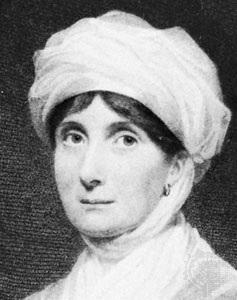A Quote by Euripides
Happy the man whose lot it is to know The secrets of the earth. He hastens not To work his fellows hurt by unjust deeds, But with rapt admiration contemplates Immortal Nature's ageless harmony, And how and when the order came to be.
Related Quotes
This world is not for cowards. Do not try to fly. Look not for success or failure. Join yourself to the perfectly unselfish will and work on. Know that the mind which is born to succeed joins itself to a determined will and perseveres. You have the right to work, but do not become so degenerate as to look for results. Work incessantly, but see something behind the work. Even good deeds can find a man in great bondage. Therefore be not bound by good deeds or by desire for name and fame. Those who know this secret pass beyond this round of birth and death and become immortal.
Vain are the beliefs and teachings that make man miserable, and false is the goodness that leads him into sorrow and despair, for it is man's purpose to be happy on this earth and lead the way to felicity and preach its gospel wherever he goes. He who does not see the kingdom of heaven in this life will never see it in the coming life. We came not into this life by exile, but we came as innocent creatures of God, to learn how to worship the holy and eternal spirit and seek the hidden secrets within ourselves from the beauty of life.
From harmony, from heavenly harmony, This universal frame began: When nature underneath a heap Of jarring atoms lay, And could not heave her head, The tuneful voice was heard from high, 'Arise, ye more than dead!' Then cold, and hot, and moist, and dry, In order to their stations leap, And Music's power obey. From harmony, from heavenly harmony, This universal frame began: From harmony to harmony Through all the compass of the notes it ran, The diapason closing full in Man.
See how he cowers and sneaks, how vaguely all the day he fears, not being immortal nor divine, but the slave and prisoner of his own opinion of himself, a fame won by his own deeds. Public opinion is a weak tyrant compared with our own private opinion. What a man thinks of himself, that it is which determines, or rather indicates, his fate.
He is not the soul of Nature, nor any part of Nature. He inhabits eternity: He dwells in a high and holy place: heaven is His throne, not his vehicle, earth is his footstool, not his vesture. One day he will dismantle both and make a new heaven and earth. He is not to be identified even with the 'divine spark' in man. He is 'God and not man.
The man who believes that the secrets of the world are forever hidden lives in mystery and fear. Superstition will drag him down. The rain will erode the deeds of his life. But that man who sets himself the task of singling out the thread of order from the tapestry will by the decision alone have taken charge of the world and it is only by such taking charge that he will effect a way to dictate the terms of his own fate.
Man is the only animal who does not feel at home in nature, who can feel evicted from paradise, the only animal for whom his own existence is a problem that he has to solve and from which he cannot escape. He cannot go back to the prehuman state of harmony with nature, and he does not know where he will arrive if he goes forward. Man's existential contradiction results in a state of constant disequilibrium. This disequilibrium distinguishes him from the animal, which lives, as it were, in harmony with nature.
In order to live, man must act; in order to act, he must make choices; in order to make choices, he must define a code of values; in order to define a code of values, he must know what he is and where he is – i.e. he must know his own nature (including his means of knowledge) and the nature of the universe in which he acts – i.e. he needs metaphysics, epistemology, ethics, which means: philosophy. He cannot escape from this need; his only alternative is whether the philosophy guiding him is to be chosen by his mind or by chance.
The lover of nature is he whose inward and outward senses are still truly adjusted to each other; who has retained the spirit of infancy even into the era of manhood. His intercourse with heaven and earth, becomes part of his daily food. In the presence of nature, a wild delight runs through the man, in spite of real sorrows.
It was the secrets of heaven and earth that I desired to learn; and whether it was the outward substance of things or the inner spirit of nature and the mysterious soul of man that occupied me, still my inquiries were directed to the metaphysical, or in its highest sense, the physical secrets of the world.




































